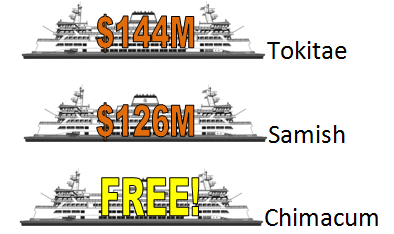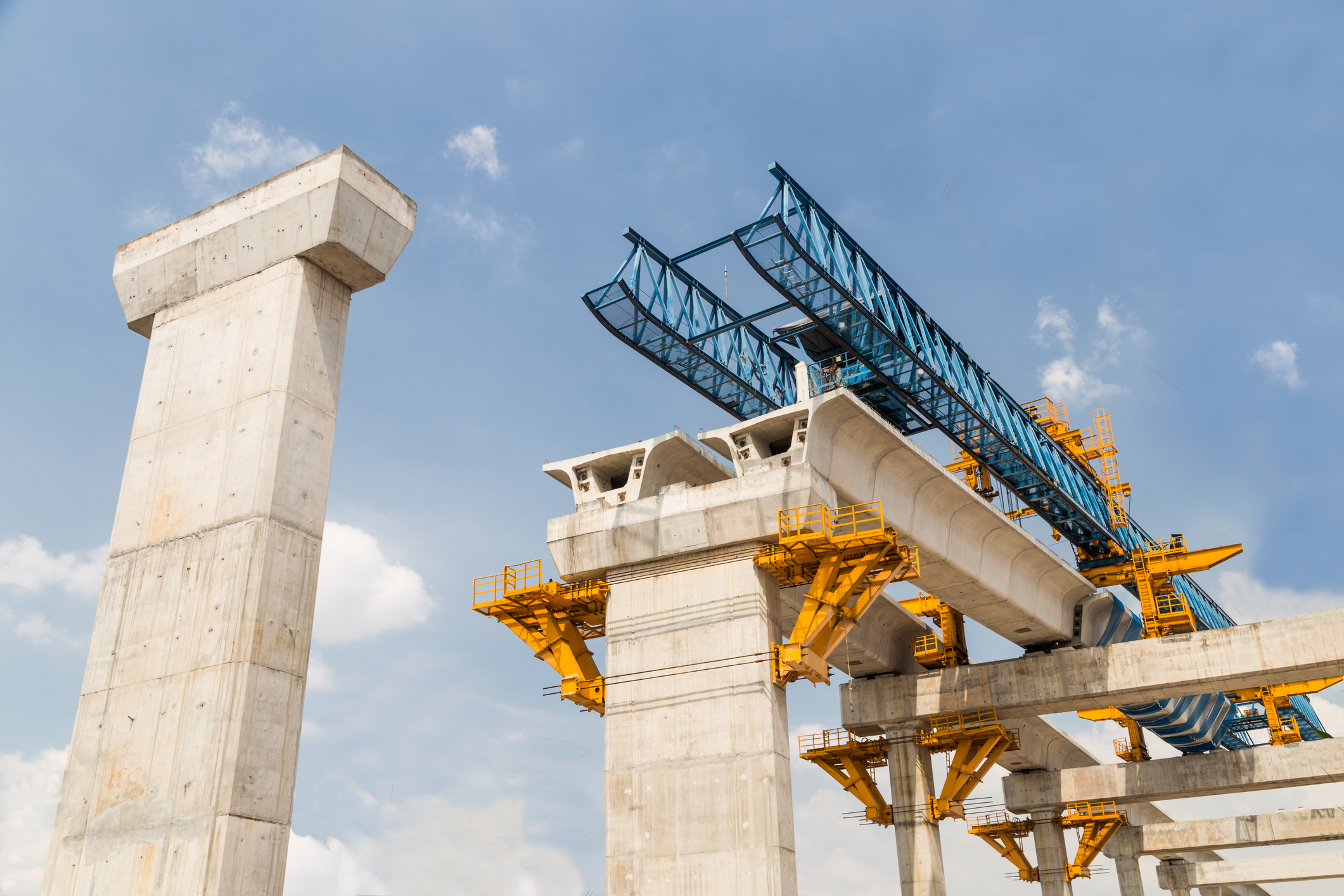Download a PDF of this Legislative Memo with citations here.
It may be the best deal state officials choose to pass up this legislative session, buy two ferries and get one free. It all depends on whether state lawmakers want to leave money on the table when it comes to buying new ships for the state ferry system. According to the Washington State Auditor, Washington taxpayers pay some of the highest costs in the nation to build new ferries. One primary cost driver is the “Build in Washington” mandate required by state legal codes RCW 47.60.814, RCW 47.60.772 and RCW 47.56.780. These laws ban truly open bidding for ferry construction, even though we could get modern, high-performance ferries built at a substantial discount elsewhere.
For example, in 2007 Washington State Ferries signed a contract with an in-state shipyard to build three, 144-car ferries at a total cost of $393.5 million, an average of $131 million per ship.
Last year British Columbian officials bought three, 145-car ferries to be built in Poland for a total of $252 million Canadian, including import fees and taxes.That is an average of only $79 million in U.S. dollars per ferry. That equates to savings of nearly $52 million per ferry. Using the Canadians’ open bidding model, our current $393.5 million ferry purchase program would save Washington state taxpayers over $150 million, enough to educate 19,527 public school students for a year.
Compared to what Washington state is currently paying, open bidding would be like buying two ferries and getting the third one free. State managers could contract for construction of the planned new ships Tokitae and Samish and the shipbuilder would, in effect, build the Chimacum too, for nothing.

In addition to gaining considerable savings, the Canadians are receiving substantial performance guarantees from ship builders. For example, if the speed of British Columbia’s new ferries is just two-tenths of a knot slower (less than one-half mile per hour) than specified in the contract, the builder must pay $125,000 Canadian in penalties. If the new boats are over one knot slower than required, the Canadians get a full refund.
In addition to strong performance guarantees, Canadian officials also receive modern upgrades. Their new ferries can run on either diesel or clean natural gas, allowing operators to improve air quality and reduce carbon emissions. Even the newest Washington state ferries burn only diesel.
A bill in the state legislature, Senate Bill 5992, attempts to remove the anti-competitive rules that keep Washington state from receiving the benefits of open bidding. But the current version of the bill, as passed on the Senate floor, is of limited benefit because it would only permit true open bidding if estimated costs come in higher than an already-inflated cost estimate. The bill would be an improvement if it becomes law, but it would still leave Washington state taxpayers paying millions of dollars more than they need to for modern ferries.
While SB 5992 represents a positive step, state lawmakers should fully repeal the ban on open bidding that keeps costs artificially high and prevents Washington officials from getting the best deal possible. Arbitrary rules that prohibit competitive bidding consume scarce public dollars that could be used to maintain and enhance Washington’s ferry fleet, without tax increases.
That is something to keep in mind next time ferry officials complain they are short on money, or that summer ferry runs have been cancelled for lack of ships. Our Canadian neighbors take advantage of open bidding. It is time Washington policymakers get on board, so we too can buy two ferries, and get one free.





